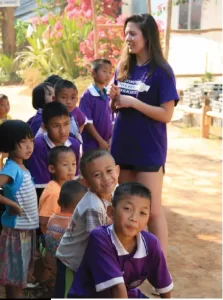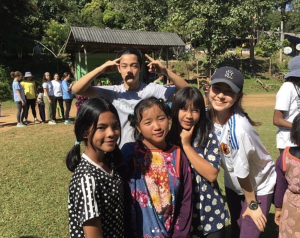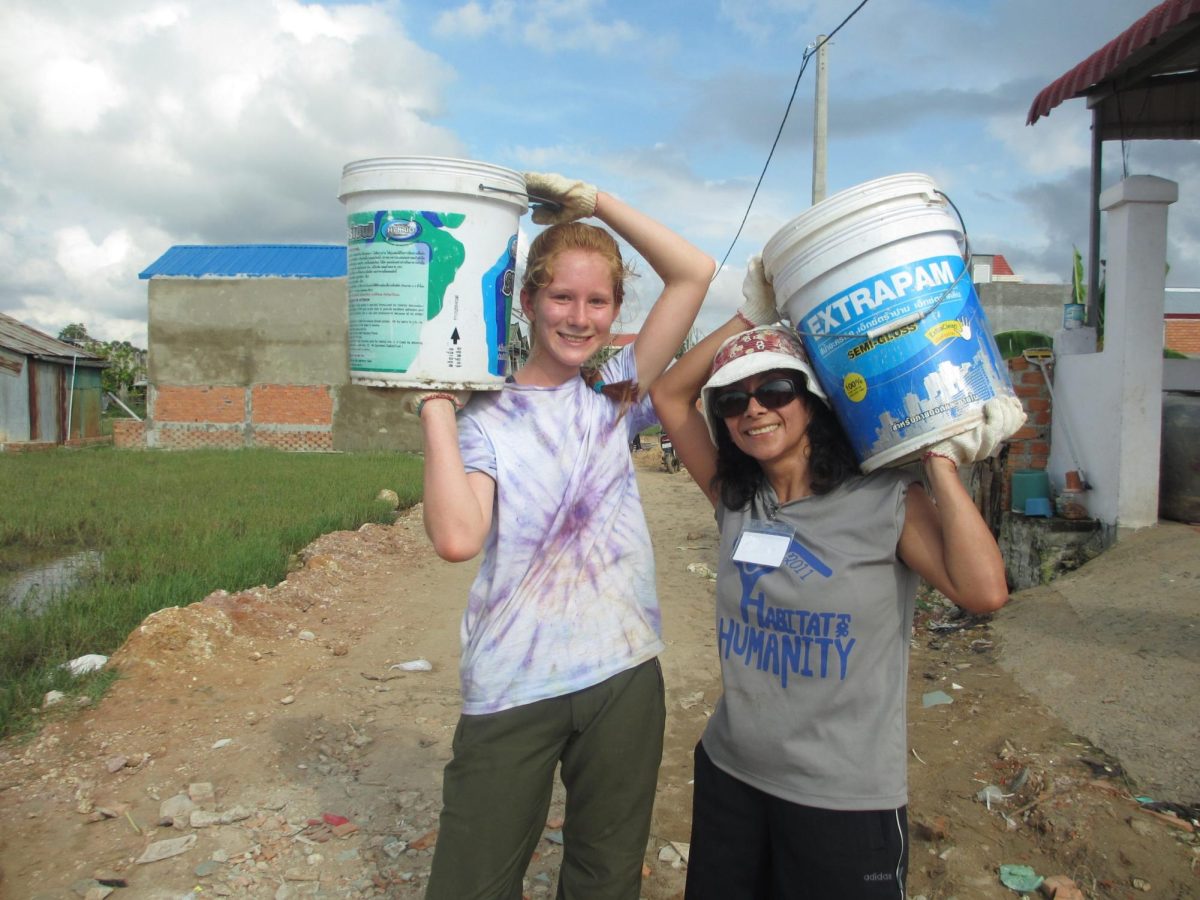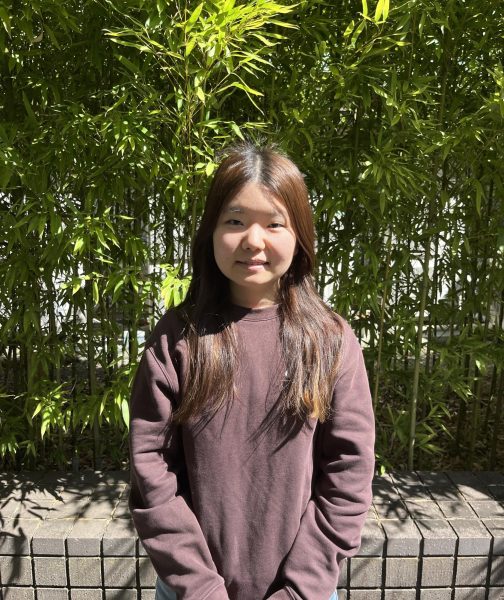The atmosphere held no hint of the unusual in Room 204. Abot Kamay’s inaugural leadership meeting was proceeding as usual, with discussions centered on assigning roles for the upcoming club fair, reviewing leadership duties, and brainstorming upcoming initiatives. However, the trajectory of both the meeting and the club itself unexpectedly veered in a different direction when members were met with startling news: their annual service trip to Thailand had been called off.
“It was initially quite shocking. That was the one major direct service opportunity we had, but now that we don’t have it—we had to think of other alternatives,” Risa Bernier (‘24), the student leader of Abot Kamay, said. “It definitely was a bit disappointing, too.”
A moratorium on international service trips was communicated to members of other service clubs at the beginning of the school year, including Hands on Tokyo and Habitat for Humanity. While the school policy change left clubs primarily engaged in local service relatively unaffected, it caused significant disruption to the direction and plans of clubs with a strong emphasis on international service, such as Abot Kamay and Habitat for Humanity.

Abot Kamay, which translates to “reaching out” in Tagalog, has primarily centered its efforts on international outreach and service in Thailand. For the past 10 years pre-COVID, the club has dedicated its efforts to assisting local children with education and constructing libraries in Thailand. To finance their trip, the club organized clothing drives and various fundraisers throughout the year.
International outreach has played an integral role in shaping the club’s identity, but now, they find themselves in a position where they must adapt. “A lot of the leaders still want to stick with our niche and specialty, so we’re struggling in terms of direction. We’re still trying to figure things out,” Risa said.
Habitat for Humanity faces a similar conundrum. Pre-COVID, the club’s mission centered on ensuring accessible and affordable housing. “We took a very hands-on approach,” Club Leader Sriya Thota (‘24) said. “By fundraising all year, students were able to go on a service trip at the end [of the year] in Southeast Asia—places like Thailand, Cambodia, and Fiji.”
During these international trips, club members contributed to the construction of homes for those in need, working closely with local construction workers. No longer able to pursue these opportunities, the club is “still rebranding and figuring things out,” Sriya said.
While the announcement has stirred both apprehension and approval within ASIJ, the ban on international service trips is guided by a greater purpose.
Katrina Baker, the new Director of Service Learning at ASIJ, was the key architect behind this policy shift. “Coming into this role, what I found out is that a lot of those [service] groups spent a good amount of time fundraising for their own trip; we’re actually gaining personally from the money that was raised,” she said. “If we’re fundraising, where might we put that money that’s more beneficial?”
In addition to discussing the need to practice effective altruism, Ms. Baker emphasized concerns regarding sustainability and the school’s recent adoption of a Diversity, Equity, and Inclusion (DEI) policy as the primary motivations behind her decision.
At current levels of flight efficiency, a roundtrip journey from Tokyo to Bangkok, Thailand emits 1.5 tons of CO2 per person, equivalent to the yearly electricity consumption of a single household. While international service efforts at ASIJ construct more habitable spaces for locals, they inadvertently contribute to making the rest of the Earth less habitable.
“Following our DEI policy, we also owe it to our host country to be involved in what is around us,” Ms. Baker said, explaining the need to shift from international to local service. “Oftentimes, we forget that even though they aren’t visible in Japan, these problems exist here, too. It’s just that they do a better job of hiding it.”
Transitioning from international to locally-focused service represents just one part of the broader dialogue around reforming service learning at ASIJ.
In May of last school year, Mr. Mike Nelson, the Dean of Student Life, announced the establishment of the Mustang Council, which introduced multiple new student leadership groups tasked with overseeing aspects of student life, spanning from advisory and service learning to student government. Its stated purpose is to nurture students’ growth in areas such as “skills development, facilitation skills, challenge network, systems thinking, and problem-solving.”

“Our main goal for the Service Council is to foster passion among students in service clubs and spread the notion that service doesn’t end with awareness,” Saki Kuramoto (‘24), a member of the Service Council, said. “Our role is to change mindsets of joining service clubs for an extra point on their college application by clearly asking the leaders to define their mission statement at the beginning of the year to gauge and foster passionate club members.”
Alongside the formation of five new leadership groups within the Mustang Council, adjustments have been made to the club meeting schedule and categories, aligning them more closely with the “current direction for club interest” and aimed to meet “ASIJ’s support of Deep Learning and the UN SDGs”, according to an email circulated in late May to the student body.
“Our Service Council intends to educate and reorganize clubs on differentiating their service between the four types of service, which include direct, indirect, awareness, and advocacy,” Saki said. The council is currently focused on advancing “all kinds of service” and has requested club leaders to outline their yearly schedules, enabling them to determine the types of service they are committed to and areas that require further attention. This approach aims to facilitate more meaningful and purpose-driven service on campus.
In an age where terms like “service hours” and “volunteer opportunities” have become buzzwords for club recruitment and increasing student participation in service activities at ASIJ, these adjustments could be more necessary than ever.
For one, Ms. Landry, the Faculty Advisor overseeing ASIJ’s National Honor Society (NHS) chapter, has recently observed a “more negative attitude toward service.” While some students embraced their NHS membership as a chance to uphold the four pillars of Scholarship, Character, Leadership, and Service throughout the campus, others saw it as an opportunity to “do the least possible” and merely “put it on their resumes,” she said. “It kind of diminished what the organization was originally intended for when it came into existence over 100 years ago.”
Ms. Baker agrees. “My goal is to start trying to move away from service hours and being a checkbox and urge students to become really passionate about one area, and one partnership over time,” she said.
As some service clubs and students increasingly emphasize product over process and quantity over quality, there remains substantial progress to be achieved in shifting cultural discourse on campus.
“We have to realize that service should not be just in your service groups—it should be embedded in the curriculum,” Ms. Baker said.
In five years’ time, Ms. Baker envisions an ASIJ where the SDGs are more meaningfully and comprehensively integrated into the curriculum, alongside a schoolwide commitment to involving more local partners. “If we’re a school that really does prioritize our mission and vision of making us empathetic and compassionate global citizens, we need to prioritize service and rethink how we approach it,” Ms. Baker said.


